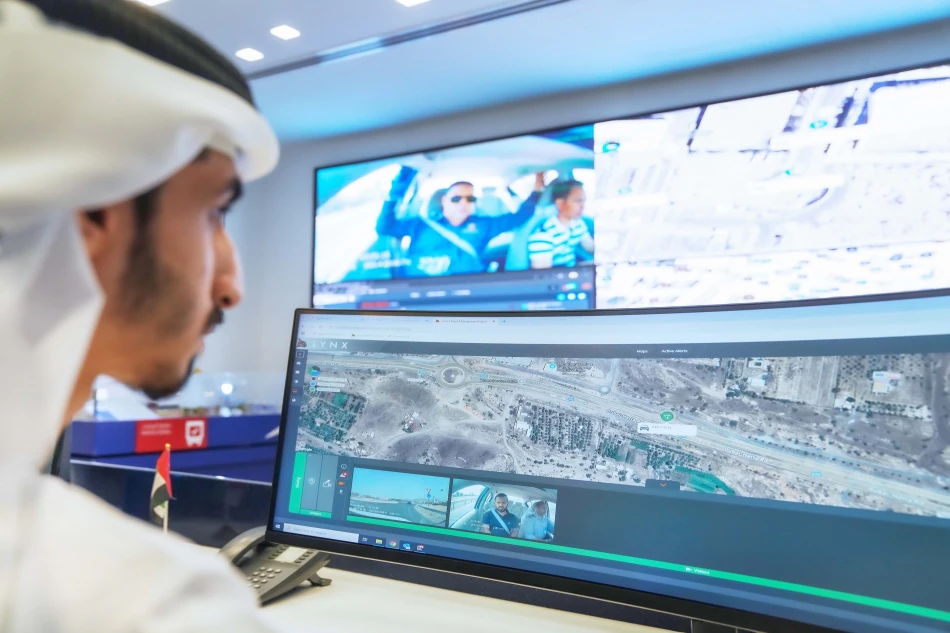
Dubai's Smart Monitoring System Boosts Driving School Student Performance
Dubai's AI-Powered Driving Instructor Surveillance System Delivers Dramatic Results
Dubai's Roads and Transport Authority has achieved a remarkable 14-fold increase in driving lesson oversight through its new artificial intelligence monitoring system, supervising over 1.7 million training sessions in just seven months. The smart surveillance technology represents a fundamental shift in how driving instruction is regulated, cutting inspection times from 20 minutes to just one minute while detecting five times more violations than traditional methods.
Technology That Transforms Driver Training Oversight
The intelligent monitoring system, launched at the beginning of 2024 by the RTA's Licensing Activities Control Department, uses AI-powered cameras installed inside driving school vehicles to provide round-the-clock surveillance of both instructors and students. The technology combines machine learning algorithms with computer vision to automatically detect violations in real-time.
The system can identify infractions such as mobile phone use, failure to wear seatbelts, unauthorized departure from designated training areas, improper instructor attire, eating, drinking, or sleeping during lessons. This comprehensive monitoring approach ensures that driving instruction maintains the highest safety standards throughout the learning process.
Impressive Scale and Efficiency Gains
During its first seven months of operation, the system monitored 1,734,790 training sessions involving 245,764 students. The dramatic improvement in oversight efficiency—reducing inspection time by 95%—allows regulators to cover significantly more ground with the same resources while maintaining stricter quality control.
Dubai's Digital Transformation Strategy in Action
This surveillance system exemplifies Dubai's broader digital transformation initiative, positioning the emirate as a global leader in smart city technologies. The RTA operates the system through its Smart Licensing Operations Center, where inspectors use intelligent dashboards to monitor real-time data across the driving instruction network.
The approach mirrors similar smart city initiatives across the UAE, where artificial intelligence and IoT technologies are increasingly deployed to improve public services and safety standards. Unlike traditional regulatory approaches that rely on periodic human inspections, Dubai's system provides continuous oversight that catches violations as they occur.
Predictive Analytics and Integration
The RTA has enhanced the system throughout 2024 by adding predictive analytics capabilities and linking instructor performance data directly to licensing and permit systems. This integration creates a comprehensive regulatory ecosystem where poor performance can trigger immediate administrative action, rather than waiting for periodic reviews.
Market Implications for Driving Schools
For Dubai's driving school industry, this technology represents both opportunity and challenge. Schools that maintain high standards benefit from reduced regulatory friction and faster processing times. However, operators relying on lax supervision now face constant scrutiny that makes corner-cutting virtually impossible.
The system's ability to generate detailed performance data also creates opportunities for driving schools to optimize their training programs based on objective metrics rather than subjective assessments. This data-driven approach could lead to more standardized and effective driver education across the emirate.
Global Context and Future Implications
Dubai's comprehensive AI monitoring of driving instruction appears to be among the most advanced systems globally. While countries like Singapore and South Korea have implemented smart traffic management systems, few have applied artificial intelligence this extensively to driver education oversight.
The success of this program could influence regulatory approaches in other emirates and countries facing similar challenges in maintaining driving instruction quality. As urban populations grow and traffic safety becomes increasingly critical, Dubai's model offers a scalable solution that other jurisdictions may adopt.
The RTA's emphasis on creating a "safe and professional training environment that qualifies high-level drivers" reflects growing recognition that road safety begins with quality driver education. By ensuring consistent instruction standards through continuous AI monitoring, Dubai is investing in long-term traffic safety improvements that could reduce accidents and insurance costs across the emirate.
Most Viewed News

 Sara Khaled
Sara Khaled






